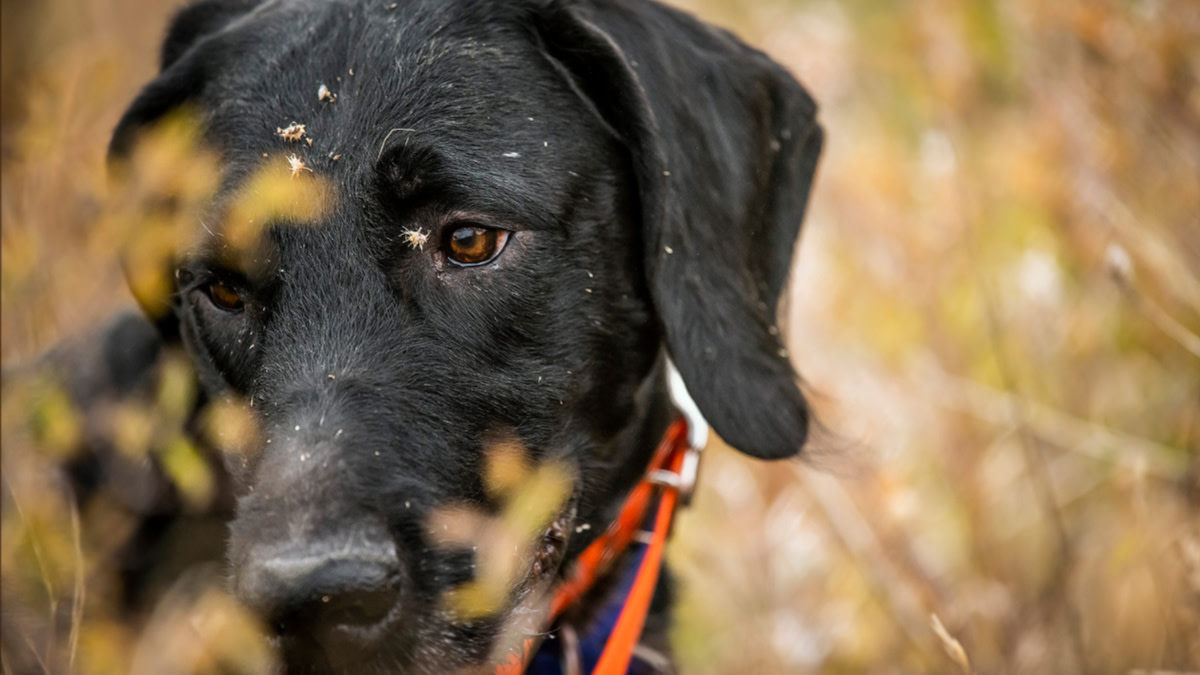
The American Kennel Club is an organization that, among other things, facilitates the recognition and registration of pure-bred dogs. Because of this, it’s common to see litters of gun dogs advertised as AKC-registered. Aside from being a hedge against any hint of mutt-dom in your dog, what does this really mean? Very little.
If you’re looking for a dog that won’t succumb to an avoidable, genetic time-bomb, or for a dog that should be intelligent and athletic, AKC-registered is meaningless.
You can have all three, but it won’t come from pure-bred status alone. This is because meeting the criteria for purity in a breed is easy, and doesn’t take into account any of the desirable traits hunters should be looking for. What’s worse is that pure-bred status can be maintained while some breeds, like many of the golden retrievers in this country, are bred simply for aesthetics. Show breeding, or any type of breeding based on looks or coat color, does nothing for the hunting crowd and is largely to blame for the reputation certain breeds have earned for developing serious health issues and premature death.
How do you avoid all of the potential negatives when picking a puppy and hedge your bets on a healthy over-achiever in the field that is eager to learn? You forget all of the cute tricks for picking an individual puppy, and you conduct your due diligence to find the right litter. According to Tom Dokken, owner of Oak Ridge Kennels and inventor of the DeadFowl Trainer, this begins with the pedigree.
“I want to dig into the parents, grandparents and great-grandparents on both sides when I’m looking up litters,” Dokken said. “I’m looking for Hunt Test (MH or SH) or Field Champion designations (NFC, AFC or NAFC), even if I or my clients will never run the dog in any type of competition.
“Dogs with field trial or hunt test champions on both sides through a few generations come from stock that has proven intelligence and athleticism. The litter will likely have strong prey drive and a high level of natural hold and carry. All of those things are desirable in a hunting dog.”
These dogs won’t come cheap, at least by barnyard litter standards. But if you’re in the hunt for a common breed like a Labrador, you might expect to spend on average around $1,500. For less common breeds, you’ll spend more. That might seem like a lot when you could find Labs all day on the internet for $500 a pop, but the purchase is more risky. In most cases, in addition to brains and field performance, you’re also paying for a healthier pup.
Riverstone Kennels owner Josh Miller explains this: “Health testing, to us, is crazy important. Most people are aware of OFA (Orthopedic Foundation for Animals) testing for hips and elbows, but we test for EIC (exercise-induced collapse) and PRA (progressive retinal atrophy) as well. We’ve also recently started genetic testing on any dogs we might breed to identify SD2 (skeletal dysplaysia), which is a gene that causes dwarfism in dogs.”
Miller’s attention to the health of all dogs he breeds is no accident. It’s partly the result of operating a business that is built and maintained largely on word of mouth, and partly due to his exposure to training and breeding across the pond.
“Since I work with British Labs a lot, and am developing solid bloodlines with them, I’ve started to understand the European methods for breeding sporting dogs. Their standards for breeding are so much more selective than ours that they tend to produce some of the best dogs you can find anywhere. That doesn’t mean you can’t find quality bloodlines here, because you certainly can. You just need to research them correctly and understand what you’re looking for.
“We get a lot of clients who say they wanted to save on the cost of a puppy so they could spend more on training. That sounds like a good idea, but I always say if you gave Michael Jordan and the waterboy for the Bulls the same coach, they’d never play at the same level. As a professional trainer, I can only work with what the dog has to offer, and the value of natural ability can’t be overstated. If you want a great hunting dog, you simply have to research litters until you find one that has every possible chance of containing genetically gifted pups.”
This is easier said than done and not without pitfalls—even for the professionals. George Hickox, a world-renowned bird dog trainer with over 100 field trial placements and well over two decades of professional training under his belt, cautions against simply believing that even a truly well-bred puppy is a sure thing.
“Not all dogs train the same, that’s just a fact,” Hickox said. “The pedigree doesn’t convey how hard or easy it was for the trainer of the sire or the dam to succeed in developing the dog to a high level. This means that actually laying eyes on the parents or grandparents, if at all possible, can be really helpful in evaluating a litter’s potential.”
If parsing through pedigrees and then trying to lay eyes on the contributors to a litter’s gene pool sounds like a lot, it is. Choosing a hunting dog this way requires serious research and strips the experience of impulsivity.
But if you want to hedge your bets on a dog that should possess a bevy of desirable traits and live a long, happy life, it’s a necessity. Whether you conduct the research yourself or enlist the help of a professional, you’ll be more confident that you’re bringing the right puppy home.
Feature image via John Hafner.






Conversation